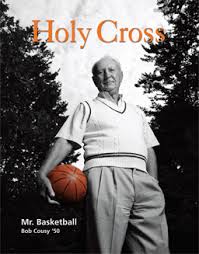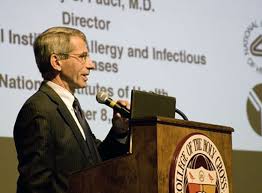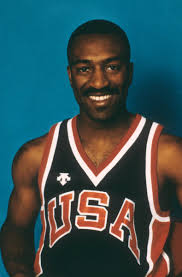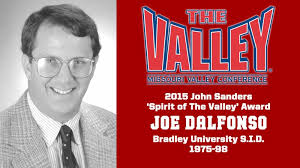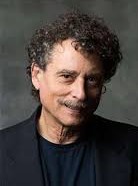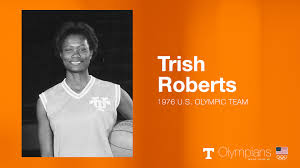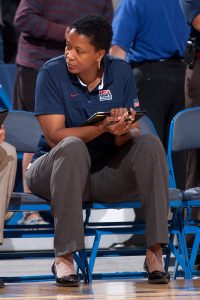A brief glance at their remarkable resumes would not make you think that they have anything in common.
Bob Cousy: Hall of Famer, won 6 NBA titles during a 7-year stretch from 1957-1963, 1957 NBA MVP, made 13 All-Star games in a row from 1951-1963, led the NBA in AST for 8 straight years from 1953-1960, and a member of the NBA’s 50th Anniversary All-Time Team.
Dr. Anthony Fauci: director of the National Institute of Allergy and Infectious Diseases since 1984, 1 of the lead members of the White House Coronavirus Task Force, 1 of the world’s leading experts on infectious diseases, and an advisor to every US president since Ronald Reagan.
However, if you dig a little deeper you will see several similarities: both men were born/raised in New York City, went to college at Holy Cross, and have been awarded the Presidential Medal of Freedom. Dr. Fauci is a little busy at the moment saving the world yet again but HoopsHD’s Jon Teitel got to talk to Mr. Cousy about all the amazing accomplishments of his fellow Crusader.
You are 1 of 3 Holy Cross graduates who have been awarded the Presidential Medal of Freedom along with Dr. Fauci and James Burke (former CEO of Johnson & Johnson): how proud are you of all the amazing alumni who have come out of Worcester? The President himself called me last year to tell me about this award, which was impressive. I have been invited to the White House by 7 sitting presidents but this was the 1st time that I received such an acknowledgment for playing a child’s game. My son-in-law Randy is computer-literate so I asked him to see if there were any other Holy Cross alumni who have received the award. It is a special award that the country gives out and it was very meaningful to me. At the end of the day I also had Senator Joe Manchin in my corner so I am what you would call a “political appointee”! James stepped in during the Tylenol panic in 1982 and recalled every single box that was on a shelf anywhere in the world. He took a big hit at the time because he did not run it by his board but it was the right thing to do. That made me even prouder to be the 3rd person on the list due to the company that I was in: it is a pretty elite club although none of us enjoy the spotlight! I retired 60 years ago so there are not too many people beating down my door. I became the Howard Hughes of the sports world about 12 years ago because I wanted to become a private person after doing decades of PR work for the Celtics. It is probably the most meaningful award that I have received in my 91 years.
Dr. Fauci has become even more well-known this year during his press conferences as a member of the White House Coronavirus Task Force: what is it about him that causes the country to trust him? He gets offstage as quickly as possible, which is an attribute I admire greatly. I am not trying to share his spotlight but over the past few decades when someone asked who my heroes were I would say Dr. Tony Fauci. Lately I have added Bryan Stevenson to the list after reading his book “Just Mercy” about 5 years ago. 1 of the items on my list of things to do before I die was to write a mea culpa to my friend/teammate Bill Russell because I felt guilty that I had not done more for him in the past. It was like going to confession for me and 1 of my dearest regrets was not feeling his pain more. I sent him a pair of books along with my note: “Between the World and Me” by Ta-Nehisi Coates and “Just Mercy”. I have talked to Bryan on the phone a couple of times and my daughter went to his new museum (the Legacy Museum and National Memorial for Peace and Justice) after it opened last spring in Montgomery, AL. I had hoped to visit the museum myself but my mobility has been negatively affected during the past year. I modestly helped Bryan do some fundraising in the past but now that he has Oprah in his corner he does not need my help as much! He did a pair of interviews with her on “60 Minutes” and explained the symbolism of the plaques at his museum (on behalf of the 4400 Black people in the United States who were lynched between 1877 and 1950). I think that Bryan could become the next Dr. Martin Luther King Jr.: he is a Black lawyer who graduated from Harvard with honors but instead of going to Wall Street and becoming a zillionaire he moved to Montgomery and opened up a non-profit firm to help the local prison population that is mostly African-American.
You have met Dr. Fauci a few times: what is he like in person? I 1st met him a long time ago after he gave a speech to a dental association in Arlington, VA. My dear mentor Fr. John Brooks (former president of Holy Cross) invited Tony to speak at Holy Cross a couple of times and I got to attend some of those alumni functions where I got to briefly chat with Tony.
As a kid he played CYO basketball and was captain of his high school basketball team in Brooklyn: do you think that he might have been able to play for the Crusaders if he was a little taller?! I read 2 books/week and watch all of the TV press conferences that Tony does. I remember Trump needling Tony on stage earlier this year that he was not a basketball player because he was 4’8” and afterward I learned that he was team captain at Regis High School. He is 5’6” but even in 1962 that was a little short. Now we are down at the bottom of the barrel in basketball (Holy Cross was 3-29 last season) but back when Tony was there we were coming off some of our best years featuring All-Americans like Jack Foley/Tom Heinsohn.
You have remained indoors for most of this year and wear a mask/gloves when going out to get groceries: how is your health doing at the moment and do you feel that Dr. Fauci’s advice has helped save lives? I am ahead of the game and the luckiest SOB on the planet in terms of my career/health but it is catching up to me. My legs are gone so it feels like they are wrapped in plaster: you should say a silent prayer that you do not get some of the other things I have! I was a high-energy guy all of my life but have felt some fatigue recently so I am starting a sugar-free diet. Tony was the main man who has helped save millions of lives. He worked on the HIV crisis and told the world not to panic, then several years later he again jumped in for 3 days of TV press conferences to deal with Ebola.
You were quoted as saying he could win the presidential election this November: is that true? No: I was being facetious but politics is about exposure and for a period of time this spring there was nobody on the planet who was referenced more on TV by anchors on the left and right. He has become THE authority on the coronavirus and I cannot think of anyone whose name is better known. I am sure that he does not have any political ambitions but he has been on every single TV show. He handled himself beautifully on stage and he and the rest of his colleagues were all very articulate/well-informed.
You watch a lot of TV news and have had weekly dinners with friends in West Palm Beach/Worcester where you discuss the ills of the world and how to cure them: are you still doing the dinners, and are they any good cures that your group has come up with recently? I have been out of action for the past 3 months due to quarantine but we are just starting them back up. I went to 8AM mass for the past 80 years to say a prayer for you heathens(!) so I have missed being unable to go to that as well. I am a creature of habit even though I do not like getting up at 7AM on a Sunday but at 91 I would be rolling the dice so I do not know if I can turn myself over to the good Lord without putting a protective cover over myself. John Havlicek/Richie Guerin used to join us for dinners in Florida: that is the 1 thing in my life that I have missed the most. For a while I was the youngest member of the group but now I am the 2nd oldest member at age 91. We do not talk about sex but we do solve the problems of the world in our own way. We just started back at the club last Thursday and had the required 6 bodies because that is all that we are allowed. We were outside under the tent in Worcester because we are not allowed inside the club but we did our thing. I hope it continues and that we do not have a 2nd terrible wave of the pandemic in the future. I have not minded the quarantine because that has basically been the past 12 years of my life.
When people look back on Dr. Fauci’s career, how do you think that he should be remembered the most? He listened to our good Jesuit mentors at Holy Cross decades ago. I spent my 1st 17 years in the ghetto in New York so I was just focused on survival/self-interest. I referenced Holy Cross when I was at the White House for my ceremony: the mentors told us to maximize our God-given skills and work as hard as we could for 4 years and then go out into the community and help everyone who has less than you as much as you can. In the 1950s we did not have a lot of money but I wish that I could have followed in Jack Nicklaus’ footsteps by donating money to build hospital wings for children. Tony spent his career at NIH simply helping people with his intellect/knowledge/desire. I think that he is the most unassuming superstar and just wants to help the world. I would like to think that he was engendered with that philosophy by the Jesuits.
In the early 1950s the NBA had no health benefits/pension plan so you organized the National Basketball Players Association (the 1st trade union among the 4 major pro sports leagues) and served as its 1st president for several years: what advice would you give to today’s players as they prepare to step back onto the court this summer for the 1st time in many months? I spoke to Commissioner Adam Silver/NBPA senior counsel Ron Klempner a few days ago. I am so proud of the Players Association that we started back in the 1950s. The current question in the sports world is when do they go back to work. Baseball has seemed a little selfish but basketball is doing much better. In my era the NBA could not give its teams away but a few years ago Steve Ballmer bought the Clippers for more than $2 billion! By creating this wealth/worth the NBA has become the best in terms of return on investment to the owners. When they divvy up their marketing dollars at the end of the day it is not just millions of dollars but billions of dollars because the NBA Finals are televised in more than 200 countries. Basketball has become the 2nd-most played sport in the world and might even overtake soccer 1 day because it just fits economically. I told Adam that he he has my respect for the way that he has handled everything. Internally when I meditate every day and think about the positive things I have done in my life I am very proud of having started the Players Association. Not a lot happened at 1st because we did not have a lot of clout but after hiring Larry Fleisher in the 1960s we finally got a pension plan. They have worked pretty harmoniously together to produce the best product out there.
You grew up playing stickball in New York City with African-Americans/Jews/other ethnic minorities and after a 1950 game in the then-segregated city of Charlotte you insisted on taking an uncomfortable overnight train with teammate Chuck Cooper after learning that he would not be allowed to stay in a local hotel: how would your senior thesis on the persecution faced by minorities change if you had to rewrite it 70 years later in today’s era of racial inequality? It would definitely include an emphasis on African-Americans. I was fabricated in France and born in Manhattan in the heart of the depression right on the East River: I thought that the whole world lived in ghettos with rats/cockroaches. Manhattan was a complete menage of ethnicity with almost every type of human being ever created…but I never saw a Black person until Vic Hanson of Long Island City during my final year of high school. I beat him out on the last day of the season for the New York City scoring championship. Most African-Americans were still living in the South back then so my thesis focused on anti-Semitism. You will have to go read Gary Pomerantz’s book about me and Russell called “The Last Pass” (www.amazon.com/Last-Pass-Russell-Celtics-Matters/dp/0735223610). My mom would kill you with kindness but she hated with a passion the Germans who disliked her French accent. However, I did not think that Germans were bad because I did not understand prejudice. I graduated in 1950 and was drafted in the 1st round by the Celtics: in the 2nd round they drafted the 1st Black player in NBA history in Chuck Cooper and we became roommates. I naively never saw him as a Black man but simply a 6’7” basketball player who just happened to have a different color skin than I did. We both had a weird sense of humor and would go watch Black entertainers at a club across from our team hotel called Storyville. We did not do any drugs but would drink a lot of beer until 2AM watching piano players who were great at playing soft jazz. They later named the gym at Duquesne in Chuck’s honor and his son Chuck III is working on a documentary about him. His son remembers Chuck telling him that I was the only color-blind person he ever knew. I think that the human animal needs a lot of help and I am hopeful that as bad as our republic is (by literally destroying itself with the pandemic and other problems) we can create some meaningful policy reforms and get rid of the hatred in our hearts as we tried to do back in the 1960s. George Floyd has had an even stronger impact and this time it is worldwide. If we are to advance human relations it has to be done with participation from both the Black and White communities. We need to make progress and end racism in police departments but it all starts in the family household with strong father figures. This is the 1st meaningful opportunity that we have had in a long time to make some progress in race relations but we need help from both sides of the fence with everyone pitching in. People in positions of power can affect things but must also realize that the world is watching and having demonstrations. Most of Europe thinks that we are savages so I was very glad when we elected President Obama in 2008: that must have surprised the s— out of them! I voted for Obama but wished that he had done even more as a “uniter” although he did provide progress. Dr. King/Robert Kennedy were good men who helped create change and even though I have 1 foot in the grave I hope that I get to see some more meaningful change before I put my other foot in the grave.

